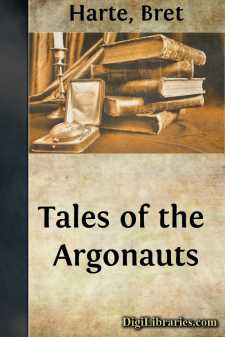Categories
- Antiques & Collectibles 13
- Architecture 36
- Art 48
- Bibles 22
- Biography & Autobiography 813
- Body, Mind & Spirit 142
- Business & Economics 28
- Children's Books 17
- Children's Fiction 14
- Computers 4
- Cooking 94
- Crafts & Hobbies 4
- Drama 346
- Education 46
- Family & Relationships 57
- Fiction 11829
- Games 19
- Gardening 17
- Health & Fitness 34
- History 1377
- House & Home 1
- Humor 147
- Juvenile Fiction 1873
- Juvenile Nonfiction 202
- Language Arts & Disciplines 88
- Law 16
- Literary Collections 686
- Literary Criticism 179
- Mathematics 13
- Medical 41
- Music 40
- Nature 179
- Non-Classifiable 1768
- Performing Arts 7
- Periodicals 1453
- Philosophy 64
- Photography 2
- Poetry 896
- Political Science 203
- Psychology 42
- Reference 154
- Religion 513
- Science 126
- Self-Help 84
- Social Science 81
- Sports & Recreation 34
- Study Aids 3
- Technology & Engineering 59
- Transportation 23
- Travel 463
- True Crime 29
Short Story Classics (American) Vol. 2
by: William Patten
Categories:
Description:
Excerpt
THE BRIGADE COMMANDER
——————————
BY J. W. DE FOREST
John William De Forest (born March 36, 1826, in Seymour, Ct.) at the outbreak of the Rebellion abandoned a promising career as a historian and writer of books of travel to enlist in the Union army. He served throughout the entire war, first as captain, then as major, and so acquired a thorough knowledge of military tactics and the psychology of our war which enabled him, on his return to civil life, to write the best war stories of his generation. Of these "The Brigade Commander" is Mr. De Forest's masterpiece. Solidly grounded on experience, and drawing its emotive power from our greatest national cataclysm, like a Niagara dynamo the story sends us a thrill undiminishing with the increasing distance of its source.
THE BRIGADE COMMANDER
BY J. W. DE FOREST
[By permission of "The New York Times."]
THE Colonel was the idol of his bragging old regiment and of the bragging brigade which for the last six months he had commanded.
He was the idol, not because he was good and gracious, not because he spared his soldiers or treated them as fellow- citizens, but because he had led them to victory and made them famous. If a man will win battles and give his brigade a right to brag loudly of its doings, he may have its admiration and even its enthusiastic devotion, though he be as pitiless and as wicked as Lucifer.
"It's nothin' to me what the Currnell is in prrivit, so long as he shows us how to whack the rrebs," said Major Gahogan, commandant of the "Old Tenth." "Moses saw God in the burrnin' bussh, an' bowed down to it, an' worrshipt it. It wasn't the bussh he worrshipt; it was his God that was in it. An' I worr-ship this villin of a Currnell (if he is a villin) because he's almighty and gives us the vict'ry. He's nothin' but a human burrnin' bussh, perhaps, but he's got the god of war in urn. Adjetant Wallis, it's a ——— long time between dhrinks, as I think ye was sayin', an' with rayson. See if ye can't confiscate a canteen of whiskee somewhere in the camp. Bedad, if I can't buy it I'll stale it. We're goin' to fight tomorry, an' it may be it's the last chance we'll have for a dhrink, unless there's more lik'r now in the other worrld than Dives got."
The brigade was bivouacked in some invisible region, amid the damp, misty darkness of a September night. The men lay in their ranks, each with his feet to the front and his head rearward, each covered by his overcoat and pillowed upon his haversack, each with his loaded rifle nestled close beside him. Asleep as they were, or dropping placidly into slumber, they were ready to start in order to their feet and pour out the red light and harsh roar of combat. There were two lines of battle, each of three regiments of infantry, the first some two hundred yards in advance of the second. In the space between them lay two four- gun batteries, one of them brass twelve-pounder "Napoleons," and the other rifled Parrotts. To the rear of the infantry were the recumbent troopers and picketed horses of a regiment of cavalry....

















